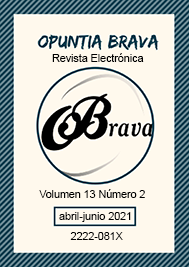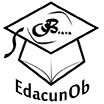University emotional education in times of covid-19: a challenge for teachers of the Ephermery career
Keywords:
lesson, emotional education, COVID-19Abstract
The training of future professionals involves not only the acquisition of knowledge and the development of cognitive abilities and capacities. In times of crisis and pandemic, the emotional education of university students has become more necessary, especially in the Nursing Career. However, university professors pay less attention to this aspect during their classes. In order to mitigate this problem, the present article proposed the following objective: to increase the preparation of the Nursing career students through methodological recommendations to teachers for the treatment of emotional education. In the scope of this end, research methods of the theoretical level were used: analysis-synthesis, induction-deduction and historical-logical and modeling. These allowed the study of the subject, the characterization of the research object and the elaboration of the proposal. In addition, indicators and criteria were proposed for evaluating its effectiveness. From this study carried out, there is an accurate guide for teachers to work on the emotionality of students in the Nursing Career, increasing their preparation for better professional performance.
Downloads
References
CEPAL- UNESCO (2020). La educación en tiempos de la pandemia de COVID-19. Informe Covid-19. Recuperado de http://repositorio.cepal.org/bisttream/handle/11362/45904/s2000510-es.pdf.
Dirocié, L. y Javier, M. (2009). Competencias de los orientadores en el uso de modelos de intervención psicopedagógica en las escuelas urbanas de los distritos educativos 05 y 06 de la regional 02 de educación del municipio de San Juan de la Maguana. República Dominicana: Biblioteca virtual de Derecho, Economía y Ciencias Sociales. Recuperado de http://biblioteca.utec.edu.sv
Escolano, A. (2020). Emociones & educación. La construcción histórica de la educación emocional. Historia y Memoria de la Educación, 11, 701-706. Sociedad Española de Historia de la Educación. Recuperado de http://doi.org/10.5944/hme.11.2020.24688
Hernández, R. e Infante, M. (2017). La clase en la educación superior, forma organizativa esencial en el proceso de enseñanza-aprendizaje. Revista Pedagogía Universitaria. Educación y Educadores, 20(1), 27-40. Recuperado de http://doi.org/10.5294/edu.2017.20.1.2
Hidalgo, F., Salazar, M. y Chile, S. (2018). El uso de las tecnologías educativas y su impacto en la formación de los profesionales de la Educación Superior. Opuntia Brava, 10(1). 296-302. Recuperado de http://opuntiabrava.ult.edu.cu/index.php/opuntiabrava/article/view/76/73
Mayer, J. D., Salovey, P. y Caruso, D. (2000). Models of emotional intelligence. En R. J. Sternberg (Ed.), Handbook of Intelligence (2nd ed), 396-420. New York: Cambridge.
Mendoza, L. L., Leyva, P. A. y Ferreiro, Y. L. (2020). Desarrollar la motivación en el proceso de formación de los profesionales: experiencia educativa. Opuntia Brava, 12(3), 123-134. Recuperado de http://opuntiabrava.ult.edu.cu/index.php/opuntiabrava/article/view/1055/1261
Ordaz, M. (2020). A causa de la Covid-19… ¿perdimos el curso escolar? Revista Mendive, 18(3) 452-456, (julio-septiembre). Recuperado de http://mendive.upr.edu.cu/index.php/MendiveUPR/article/view/2053 p. 452-456.
Rodríguez, Z. Chércoles, L. E., Santisteban, F., Ricardo, J. M. y Uriarte, M. E. (2017). La clase según lo establecido en reglamentos ministeriales cubanos. MEDISAN, 21(9), 1-10. Recuperado de https://www.medisan.sld.cu/index.php/san/article/view/1590
Vila, J. J. (2020). Un virus antipedagógico. Tenerife, España: Ined 21. Recuperado de https://ined21.com/un-virus-antipedagogico/







.png)



.png)



.png)





















